This year, 768 teams made up of 3086 young people from 23 countries sent us their ideas for experiments to run on board the International Space Station (ISS) for Astro Pi Mission Space Lab.
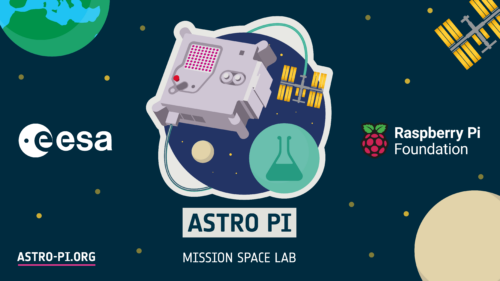
Mission Space Lab is part of the European Astro Pi Challenge, an ESA Education programme run in collaboration with us at the Raspberry Pi Foundation. Mission Space Lab teams can choose between ‘Life on Earth’ and ‘Life in space’ for their experiment idea. As in previous years, ‘Life on Earth’ was the most popular experiment theme: three quarters of the teams chose to submit an idea with this theme, for experiments using one of the Astro Pi’s High Quality Cameras. Half of these experiments involved using the near-infrared sensitive camera to investigate topics such as deforestation. Across both themes, over 40% of teams expressed an interest in using machine learning in their experiment.
Mission Space Lab teams are now getting ready to write and test their code
A panel of 25 judges from the Raspberry Pi Foundation and ESA Education assessed the submitted ideas. We are restricted in how many teams we can accommodate, as time to run experiments on board the ISS is limited, especially for ‘Life on Earth’ experiments which need time in a nadir window. The standard of the submitted ideas was higher than ever, making this the toughest judging yet. We are delighted to announce that 486 teams will move on to Phase 2 of Mission Space Lab: writing the code for their experiments.
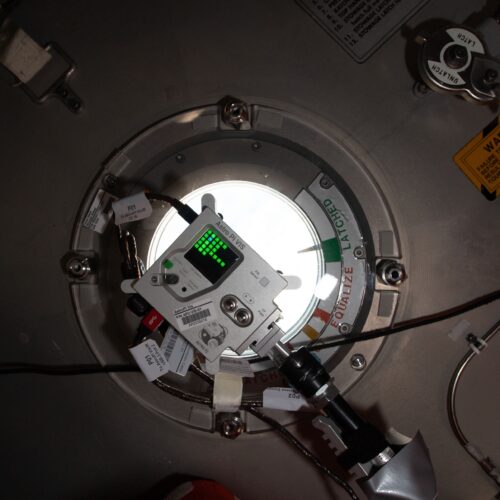
If your experiment idea was unsuccessful this time, we understand that this will be disappointing news for your team. We encourage them to submit a new experiment idea in next year’s Mission Space Lab. We will let you know when Mission Space Lab 23/24 will be launching.
All the teams whose experiment ideas we’ve selected will receive a special Astro Pi hardware kit, customised to their idea, to help them write and test the Python programs to execute their experiments. Once the teams of young people have received their kits, they can familiarise themselves with the Astro Pi hardware and then create and test (and re-test!) their programs.
Young people’s Mission Space Lab code will run in space next year
The deadline for Mission Space Lab teams to submit the code for their experiments to us is Thursday 24 February 2023. Once their program code has been through our rigorous checks and tests, it will be ready to run on the Astro Pis on board the ISS during April/May 2023.
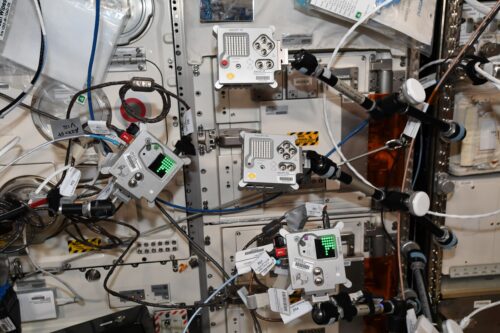
Congratulations to the successful teams, and thank you to everyone who sent us their ideas for Mission Space Lab this year. And a special thank you to all the teachers, educators, club volunteers, and other wonderful people who are acting as mentors for Mission Space Lab teams. You are helping your young people do something remarkable that they will remember for the rest of their lives, and the Astro Pi Challenge would not happen without you.
Welcome back, Ed and Izzy!
Every year since 2015, thanks to our annual Astro Pi Challenge, teams of young people have written computer programs to run scientific experiments on two Astro Pi computers on the ISS.
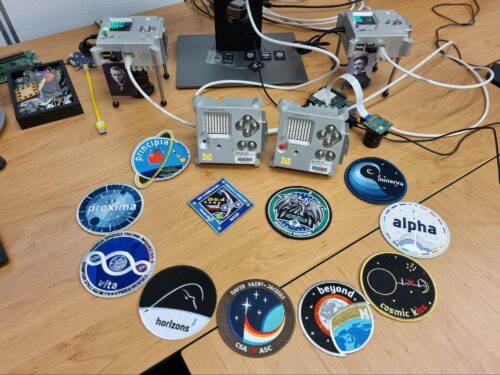
This is the second year that experiments will run on the Mark II Astro Pi computers, named after Nikola Tesla and Marie Curie, but lots of people have been wondering what would happen to their predecessors. After running over 50,000 young people’s computer programs, the Mark I Astro Pi computers, Ed and Izzy, have safely returned to Earth for a well-earned rest.
Young people can take part in Astro Pi Mission Zero
Astro Pi Mission Zero is a one-hour beginners’ programming activity. In Mission Zero, young people, in teams or as individuals, write a program to display an image or series of images of their own design on one of the Astro Pi computers, to remind the astronauts on the ISS of home.
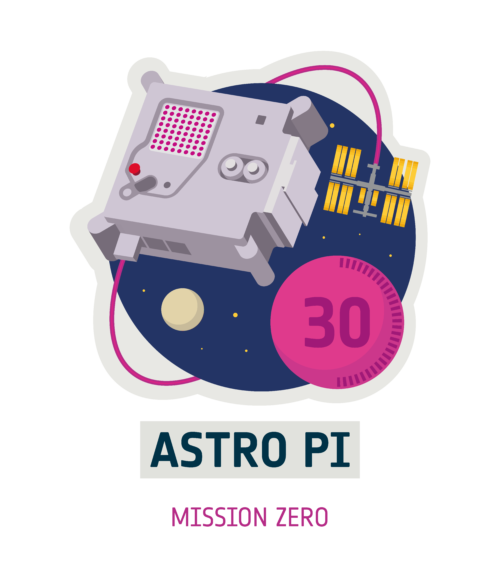
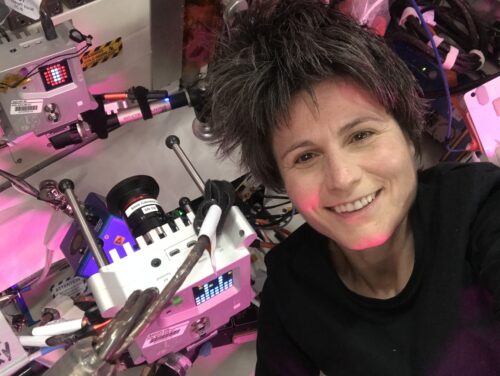
In their Mission Zero programs, young people get to use a reading from the Astro Pi’s colour and luminosity sensor to set the colour of their image background. Young people up to age 19 from eligible countries can take part in Mission Zero 2022/23 until 17 March. Visit the Astro Pi website for more details.
Website: LINK

